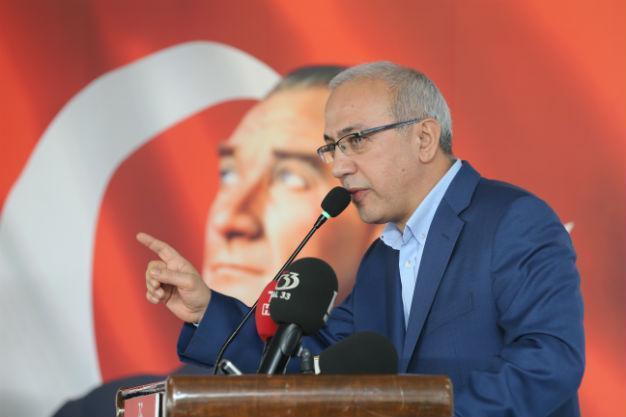Turkish gov’t to speed up economic reforms, revise public procurement law: Deputy PM
ANKARA

AA photo
Deputy Prime Minister Lütfi Elvan has said a number of judicial and administrative reforms will soon be realized to boost investment, production, exports and employment, following a meeting of the Coordination Council for the Improvement of the Investment Environment (YOİKK).
The public procurement law will be revised in accordance with the European Union rules, he noted.
The structure of the council was recently revised to be at the ministerial level, rather than undersecretaries, to develop a roadmap for the required reforms. The council is headed by Elvan.
“We realized some 50 percent of the promised reforms which were projected to be made in the three-month period after the action plan was announced. The YOİKK was at the level of undersecretaries before, but we have changed its structure to the ministerial level and included the related non-governmental organizations on the board. We will soon simplify bureaucratic procedures before local and foreign investments. The procedures for launching new companies and taking work licenses will also be simplified. It will be easier to take business licenses in the energy sector,” he said, adding that the single-window system will be applied for customs.
Elvan added that a number of specialized courts would be established in several sectors, mainly finance and telecommunications, to increase the effectivity of courts in business.
“We’ll revise the public procurement law in line with the EU public purchases directive. We will also develop a fresh patent law to encourage industrial production with higher added value,” he noted.
Elvan said Turkey ranked 55th out of 189 countries in the World Bank’s Ease of Doing Business Index, noting this was not high enough for Turkey though however adding the country showed significant improvement in the last decade.
“Turkey ranked 79th in loan supply and 61st in tax payments. We showed the worst performance in closing down business, ranking 124th out of 189 countries. We will do anything to improve investment conditions, taking these areas as a priority,” he said.
Overall, the World Bank’s 12th annual report found the 10 economies with the most business-friendly regulatory environments were Singapore, New Zealand, Hong Kong, China, Denmark, South Korea, Norway, the U.S., the U.K., Finland and Australia. The 10 economies that improved the most since were Tajikistan, Benin, Togo, Côte d’Ivoire (Ivory Coast), Senegal, Trinidad and Tobago, the Democratic Republic of the Congo, Azerbaijan, Ireland and the United Arab Emirates.
